After a few nights in Wales, we headed to York, a city famous for having "one pub for every day of the year." I don’t know if that’s actually true, but there sure were a ton of pubs!
My first chat was with Paul Crossman, the Chair of Campaign for Pubs, the organization that started my obsessive inquiry into the state of English pubs.
Paul has been deep in the pub trenches for over 16 years. He advocates for pubs and runs three himself in York - The Swan, The Slip, and The Volunteer Arms. But the Swan was the first pub he managed and thus his first foray into the political quagmire that is being a publican in England.
During his tenure at the Swan, Paul witnessed what he and other publicans call "the churn." Individuals, often ex-military/firefighter/police (ideally someone with a good pension), would sign a lease with a pubco to be a publican for one of their tied houses. Often, the tenants are new to the industry and wouldn’t realize how much power the lease gave the pubco. The pubco would then start squeezing the tenant’s profits for the duration of the lease, typically 5-10 years. Eventually, the tenant would be financially insolvent and forced to exit the pub. At this point, the pubco would slap dilapidation costs (building repairs) on the tenant and even keep their security deposit. If this required legal action from the pubco, so be it. Once that tenant is disposed of, rinse and repeat.
Paul even witnessed it firsthand. When he initially took over The Swan, it was owned by Punch Taverns (one of the largest pubcos out there). He was on a “semi-tied lease,” meaning he had to buy from the Punch Tavern approved beer list, but not hard alcohol or wine. By the end of his 10-year lease, he was paying between 90-100% over market rate for his beer.
After seeing this played out repeatedly, he met other publicans, including our friend Dave Law, and started campaigning for the industry. After a dramatic fight, the Pubs Code Regulations of 2016 was passed, creating the "Market Rent Only" option and effectively allowing pubs to go free of tie in some circumstances. It was a big win, a historic win, in a Conservative-led government at the time. But what was eventually passed was a watered-down version of the legislation they initially proposed. After years of campaigning, it’s still too hard for a pub to escape the clutches of the pubco.
You could tell there was a bit of cynicism in Paul's voice as he recalled the political dogfight - if this level of corporate fleecing and corruption is happening to pubs, where else is it happening?
But despite the cynicism, there is a sliver of hope left for an impending new government, presumably a left-leaning one.
There is currently one piece of legislation that pubs can try to use as protection from predatory pubcos. As a part of the Localism Act of 2011, anything that has local community importance can apply to be listed and classified as an "asset of community value" - this can be a park, sports stadium, or even a pub. If registered as a community asset, whenever the pub is up for sale, the community is granted a six-month moratorium to get the funds together to buy the pub themselves.
In theory, this is great. There have been a few good examples of community-owned-and-operated pubs around England, including The Golden Ball in York.
But the pub’s owners aren't technically obliged to take the community's offer and go with the highest bidder anyway, often a development company looking to turn the pub into an apartment complex. In some cases, this has led to communities getting caught in a bidding war and severely overpaying for the pub.
One of the big pieces of legislation Paul and the Campaign for Pubs is advocating for is to make that provision more robust. Under their proposal, a pub (50 years or older) couldn't be sold unless it's been listed at a fair market rate for over one year. This would give community members a longer opportunity to get the funding together and avoid a bidding war with a private firm. If nobody buys the pub at a fair valuation during that year, then it can be sold to whoever.
It’s not the solution to save all pubs, but it is a simple proposition that could act as a stopgap and allow communities to protect their assets from predatory practices.
Or even better yet, get rid of the pub tie altogether.
In any case, the hope is that with a new government, there might be at least some willingness to listen.
But still, there are challenges with an assumed incoming left government.
There's a common objection that happens from any sensible person when it comes to the topic of alcohol - it's just not good for you. Which is undeniably true. In almost all measurable indicators, alcohol is objectively a negative.
But there's an argument, a compelling argument, to be made for pubs when it comes to public health.
“Pubs bring people together, they create community cohesion, they combat isolation and loneliness and they don't cost the state a thing."
Pubs are the original "third place," the space between home and work. The space where people can come together to share happy and sad moments. Places to talk, places to listen, places to be heard. A place for real-time peer feedback and community checks and balances. All in a space that has been around for hundreds of years and is tightly integrated into the social and cultural fabric of the patrons.
It's sure as hell better than drinking alone at home with some cheap grain alcohol. A well-stewarded pub offers a regulated, healthy drinking space.
Traditionally, though, this type of community benefit has been much more challenging to quantify. Some researchers are trying, though. Paul mentioned one study during our chat that I had to find -“Drinking Alone: Local Socio-Cultural Degradation and Radical Right Support—The Case of British Pub Closures.” In it, the author shows a relationship between community pub closures and the propensity to vote for a far-right political candidate. You can read through the whole thing, but here are a few interesting snippets:
The decline in these social places matters because they are not only functional enablers of social interaction; they also convey historical, geographical and social meanings that their inhabitants internalize and re-enact in their daily interactions within such spaces (Agnew, 2011). They develop a distinctive character, and become associated with distinctive traditions, for a specific social group, which has been described in sociology as a ‘communal ethos’ (McQuarrie, 2017). In turn, people come to feel a sense of belonging in, and develop attachments to, these places, groups and traditions; they become a part of their inhabitants’ cultural identity. Accordingly, the loss of these socio-cultural hubs triggers not only the individual pain of losing something valued but a sense that one’s social-cultural group (and its distinctive traditions and values) has become marginalized and abandoned (while other groups ascend).
Eventually, the author’s analysis concludes that:
One additional community pub closure relative to the number of pubs in the district increases an individual’s likelihood to support UKIP by around 4.3 percentage points. The impact is magnified under conditions of material deprivation. It is also unique to community pubs since no effect has been found for pub chains, pubs in the city center or gastro pubs.
Note: UKIP stands for United Kingdom Independence Party and is a right-wing populist party the author uses as a proxy for radical right-wing support in this paper.
Sadly, Heineken now owns The Swan, and Paul’s time there as a publican looks bleak. When the time for lease renewal comes in 2027, Paul thinks Heinkein will put in their own operator. Someone a little less willing to fight back.
But Paul echoed a very similar sentiment to Dan and Henry from the Woolpack:
"This isn’t really my building, it's not even Heineken’s - it belongs to the community. We're just stewards while we're here."
Fortunately, his other two pubs, The Slip and The Volunteer Arms, are “freeholds,” meaning he owns the pub and the property. I can confidently say both are in good hands.
-Skylar
The Swan



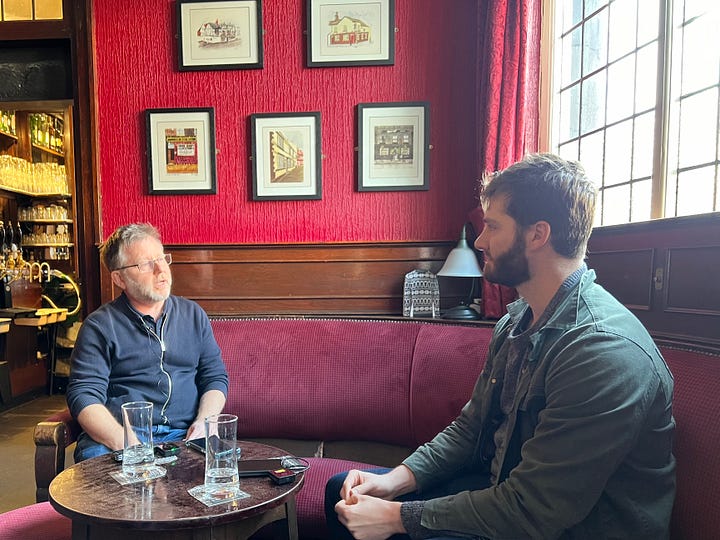

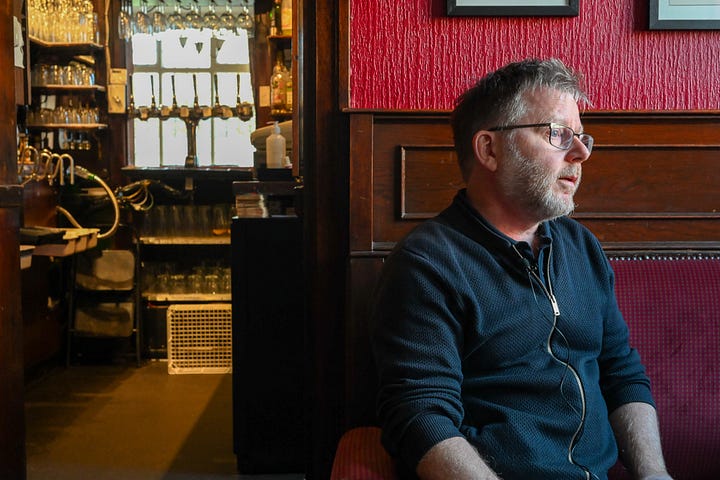
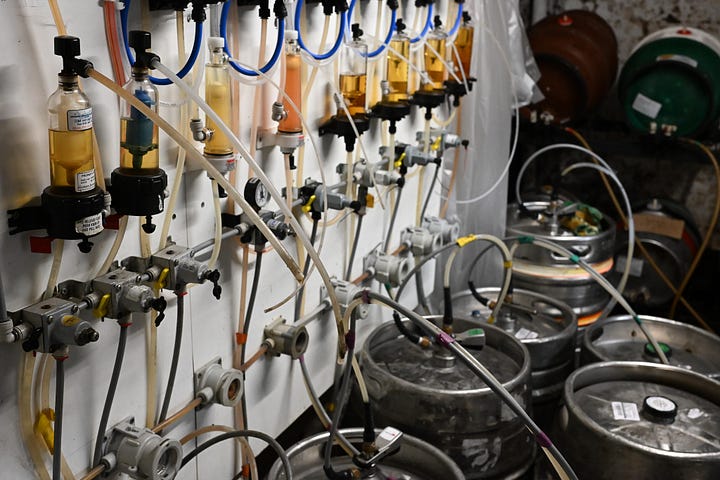
The Slip
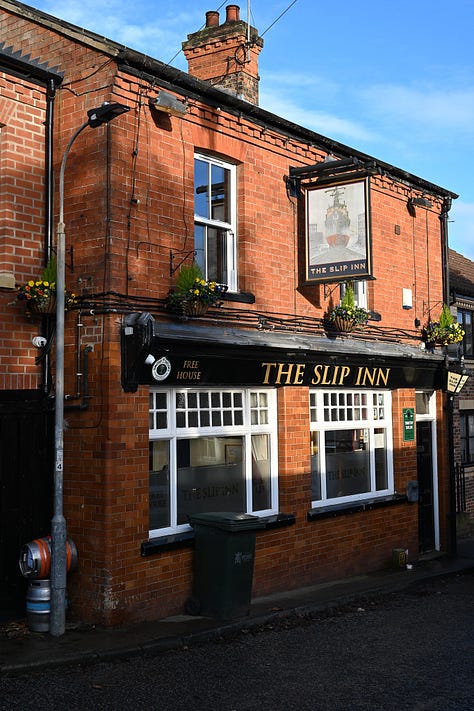

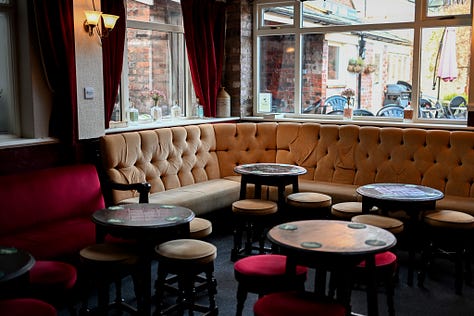

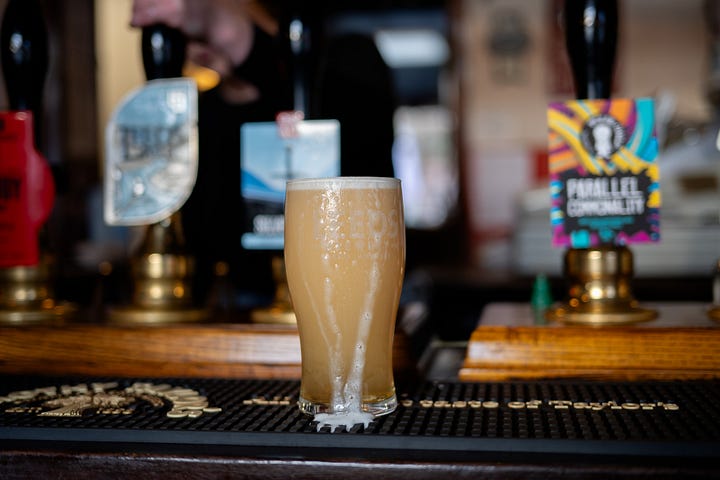
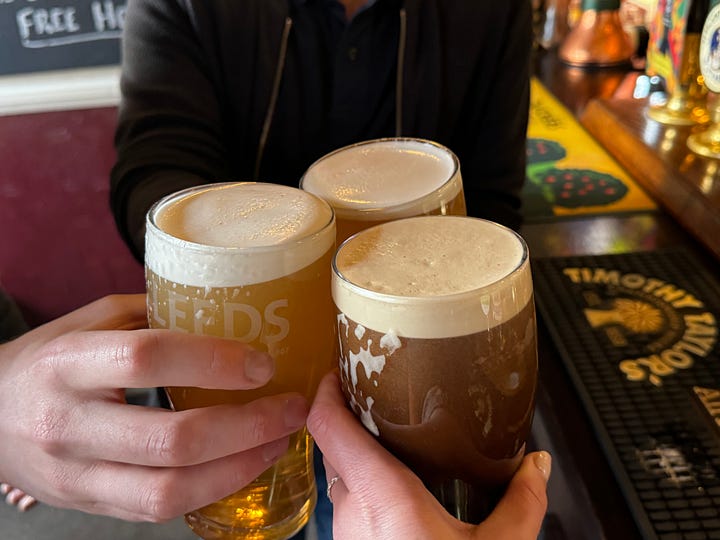
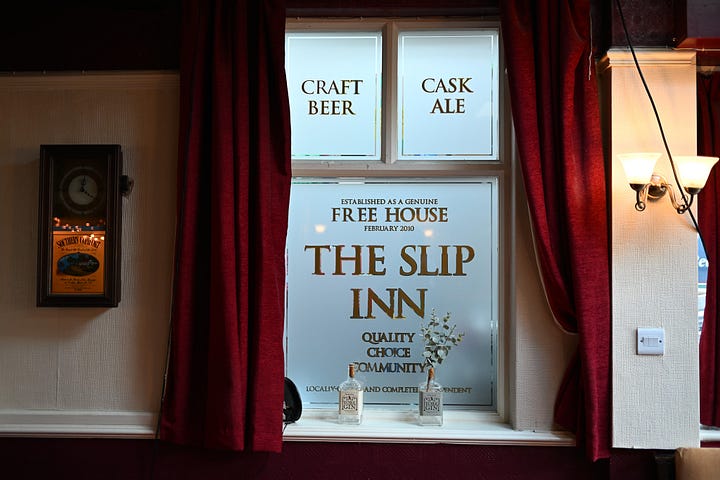




Wow, so depressing to hear about the corporate interests doing this here in the UK.
Great article. The Slip is one of my favourites. Do visit The Black Swan in Peasholme Green, The Blue Bell and my personal favourite, the front bar in The Phoenix right next to the city wall at Fishergate. Cheers!